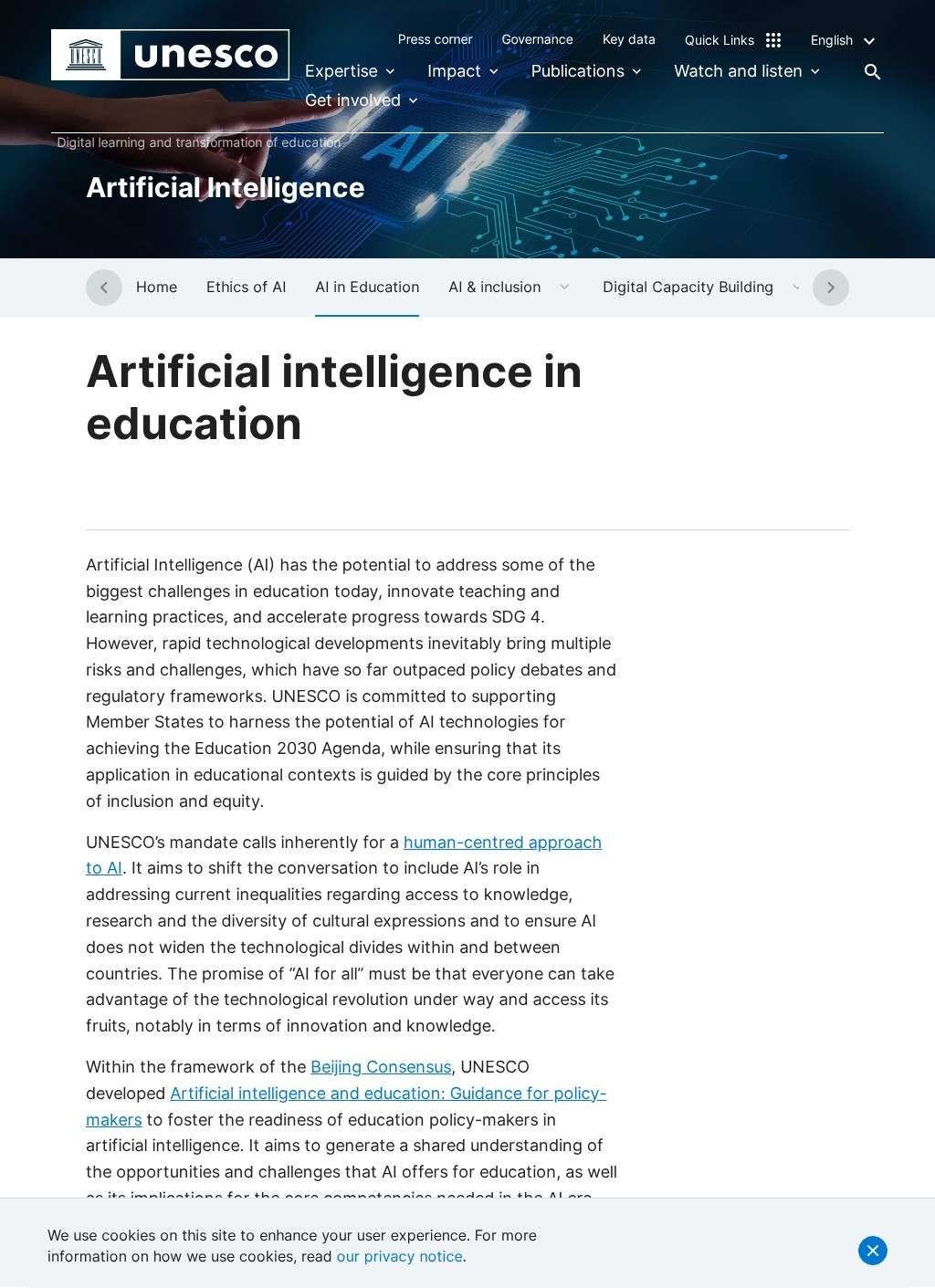UNESCO's AI in Education initiative represents the organization's response to the rapid integration of artificial intelligence in educational systems around the world. This platform serves as the global clearinghouse for AI education policy, providing member states with evidence-based guidance on how to harness AI technologies while maintaining educational equity and human-centered approaches. The initiative recognizes that AI has tremendous potential to address longstanding educational challenges, but only when implemented thoughtfully with proper safeguards. UNESCO approaches this work from their unique position as a global education authority, bringing together insights from diverse educational contexts and cultural perspectives that purely commercial or national efforts might miss.
The core service offering revolves around three main pillars that work together to support responsible AI integration. First, UNESCO develops policy frameworks and guidance documents that help education ministers and administrators make informed decisions about AI adoption. The Beijing Consensus on Artificial Intelligence and Education serves as the foundation document, providing shared principles for AI use in education globally. Second, they create competency frameworks for both students and teachers, outlining the skills and knowledge needed to work effectively with AI tools. Third, the organization facilitates international dialogue through conferences, workshops, and collaborative research that helps countries learn from each other's experiences and avoid common pitfalls.
UNESCO's approach differs significantly from commercial AI education platforms by prioritizing equity and inclusion over technological advancement for its own sake. The organization focuses heavily on ensuring that AI integration doesn't widen existing educational gaps between countries or within societies. Their guidance emphasizes human-centered AI that supports teachers rather than replacing them, recognizing that education fundamentally depends on human relationships and cultural understanding. This perspective becomes especially important when considering how AI tools developed in wealthy countries might not translate effectively to different cultural and economic contexts.
The platform provides several distinct resources tailored to different stakeholder groups within educational systems. Policymakers can access comprehensive guidance documents that cover everything from AI governance models to funding considerations for educational technology. Teachers benefit from competency frameworks that help them understand how AI works and how to use it effectively in their classrooms while maintaining critical thinking about its limitations. Students receive age-appropriate AI literacy curricula that help them become informed users and creators of AI technology. Educational researchers find methodological guidance for studying AI impacts and effectiveness in educational settings.
Recent initiatives showcase UNESCO's commitment to staying current with rapid AI developments while maintaining their focus on responsible implementation. The organization has convened ministerial roundtables on generative AI in education, bringing together education leaders from around the world to discuss policy responses to tools like ChatGPT. They've also launched projects focused on AI curriculum development, teacher training programs, and international cooperation on AI ethics in education. These efforts address immediate concerns while building long-term capacity for thoughtful AI integration across diverse educational systems.
What makes UNESCO's offerings particularly valuable is their emphasis on addressing AI risks and challenges alongside opportunities. The organization provides frank discussion of issues like algorithmic bias, data privacy concerns, and the potential for AI to reinforce existing inequalities in education. Their guidance documents include practical strategies for mitigating these risks rather than glossing over them. This balanced approach helps education leaders make realistic assessments of AI tools and implement appropriate safeguards from the beginning rather than dealing with problems after they emerge.
The international scope of UNESCO's work creates unique value for educational institutions looking to understand global trends and best practices in AI integration. The organization regularly publishes comparative analyses of how different countries approach AI in education, highlighting successful strategies and common challenges. Their conferences and workshops bring together educators from diverse contexts to share experiences and learn from each other. This global perspective becomes especially important as AI tools become more widely available and educational institutions need to understand how their choices fit within broader international trends.
For educators and administrators seeking guidance on AI integration, UNESCO provides multiple ways to engage with their resources and expertise. Their main website serves as a central repository for policy documents, research reports, and practical guidance materials, all available in multiple languages. The organization offers technical assistance to member states developing AI education policies and can provide expert consultation on specific implementation challenges. Educational institutions can participate in UNESCO's research initiatives and pilot programs, contributing to the global knowledge base while receiving support for their own AI integration efforts. Regular webinars, conferences, and training workshops provide opportunities for professional development and networking with international colleagues working on similar challenges.
